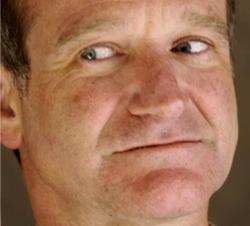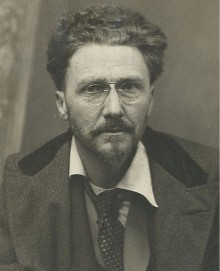Life at the Lake
a diary of living at a small lowland lakeWHAT IT'S LIKE

Early moonrise over Lake Ketchum
|
Archive Search |
| Links |
|
and s-integrator |

A fit subject for recall?
If they can recall the Governor of the State of California, because nobody likes or trusts him, why can't they recall the President of the United States, because he lied repeatedly to the American public about the war in Iraq, weapons of mass destruction (none), and is busting the budget with war costs, while cutting the taxes of his corporate friends?
Or don't I understand what is going on? They impeached President Clinton because of an indiscretion (let us call it). Nobody got screwed; nobody got hurt or killed. And it didn't effect the national debt one whit.
- - Comments ()
...

Leaves like elephant ears
Signs of unmistakable autumn are huge leaves from the black cottonwood lying on the ground. They are not only the color of elephant ears—a mottled dun of brown and gray—but they are correspondingly huge.
When the wind catches them, they scuttle across the asphalt with a scratching sound.
And the great blue heron has returned from wherever it is he went in late spring. Once I saw two heron mating; it was awesome and looked like one wanted to kill the other. After copulation was over, they walked around as if nothing had taken place and soon flew off to wherever they go. (If they had been people, one of them would have lit the first cigarette, I am sure.) And as for where they go afterwards, none of them is telling.
The heron stands by my shrunken shore and other birds, such as the dwindled mallard brood which has been decimated to two ducklings that are nearly, but not quite, the size of their mother, swim surprisingly near those twin towers of stalk-like legs. I've heard that "birds of a feather, etc.," but birds of different feathers frequenting each other's company. . . ? Well, it leaves me feeling surprised and not sure of myself.
And while there are some rosy finches still around, the first Oregon juncos (a bird of about the same size) have appeared. If this is an ordinary year, soon they will be here in numbers. And there have been Stellar jays for months, though they seem to have increased their number.
After the single sighting of common mergansers and northern shovelers (about six of each species), they have not been sighted again, at least not by me. They were a passing fancy, I fear.
And what I miss most, out of Lake Ketchum's past, is the American widgeon. When we had abundant duckweed—a real annoyance—they came in about this time of the year to feast. Now that it has been poisoned out, the widgeons have no reason to show up, and I miss their squeaky call, and the way they flush in such large numbers, filling the sky and their scat falling to the water like grapeshot.
- - Comments ()
...

Robin Williams as Sy Parrish in "One Hour Photo"
Robin Williams is the only actor around who can send a true chill of dread down my spine. Sure, Anthony Hopkins can scare me in "Blood of the Lamb" Or "Titus Andronicus," but not the way Williams does in "One Hour Photo," which we saw last night on a rented DVD.
I always dread seeing a Robin Williams movie, but rarely miss one. It is always for the same reason: he is blood chilling in his portrayals of the lonely, dispossessed of this world. George Spelvin, the bomb-wielding anarchist in Conrad's "The Secret Agent," Garp, in "The World According to Garp," and "Popeye" are only a vast sampling of his great dramatic range. In 1992 five of his films were released; a prodigious amount for a single year. He was John Keating in "Dead Poets' Society," Mrs. Doubtfire in the movie of the same name, Armand Goldman in "The Birdcage." He was Sean Mcguire in "Good Will Hunting." And many remember him as Mork of "Mork and Mindy," a TV series.
All of these roles were star vehicles and he shone in them. He has created a complex, frightening personal conglomerate of characters, none of them more chilling than Seymore Parrish in "One Hour Photo."
Totally "in character" of the demented, loner he portrayed, the camera rarely leaves his wooden face. His emotions are outwardly under complete control. Inside, though, he is twisted, on the verge of becoming manic, destructive. With no family of his own except the purchased photo of a woman from the Fifties, whom he claims was his mother, he lives alone and runs a photo-processing unit of a huge department store that closely resembles Walmart.
He has adopted, in his own mind, at least, a handsome, wealthy family that brings their exposed film to him for quick processing, not knowing that he makes a duplicate set of prints for himself, with which he papers one whole wall of his apartment. What he can see of their life becomes his life and he is like an uncle to them, or so he would like to be thought of. But any intrusion into their lives is met with a polite, cool rebuff.
When the husband has an affair, Sy is outraged. He is in the process of losing his job, a job in which his pride and entire being are wrapped up. He is tripped out of his delicate balance of sanity and sets out to avenge, or revenge, the violation of what he believes to be his own family unit. How he does this, and the extent to which he succeeds, is the climax of this movie thriller.
We see the movie through his eyes, the eyes of Robin Williams, who has totally become his character. It is also a parable about an image-driven culture and the sentimentality with which families record their history through establishing these visual "data points." Of course when the family is falling apart, the processed images cannot hold the family together any longer. They fail, as does the integrity of the family itself.
There are some great lines in the film, lines that won't leave you alone after the film ends. If photos are but data points in a family's history and evolution, what else is there of value in life? Nothing else is left to matter, including "the wasp on the Jello," as Sy points out, or the dehumanized series of industrial images that he is left with when he is captured and committed to mental internment.
It is an awful movie, a nearly perfect film, and it is the intelligence and talent of Williams that clearly makes it so. It serves as a paregoric for our times.
- - Comments ()
...

Ez as a young man, from Hamilton College archives
Damn it all, Ez—it is impossible to like you.
Respect you maybe. Recognize your intellect, surely, and value you as a poet and important personage of your time, yes. But like those significant ideas on usury, repeated over and over, and your prejudices against Jews and blacks, and practically everybody else alive (including the Founding Fathers), no. Not like you.
I continue to wade through The Cantos, finding just enough substance and meaning to make it worth while. Page 538 today, and another several hundred more before I sleep, metaphorically speaking.
But each summer (it is early autumn now) I decide to tackle some Big Book, and this year it is yours.
From yesterday's reading, on running into James Joyce [pg. 476]:
"In fact a small rain storm . . .
as it were a mouse, out of cloud's mountain
recalling the arrival of Joyce et fils
at the haunt of Catullus
with Jim's veneration of thunder and the
Gardasee in magnificence
But Miss Norton's memory for the conversation
or ("go on") of idiots
was such as even the eminent Irish writer
has, if equalled at moments (? sintheticly)
certainly never surpassed"
There is more, but this ought to do for now, and perhaps longer. If you get my drift?
- - Comments ()
...

Halfway through The Cantos at page 415!
To conclude the 73 cantos that comprise the earlier writing, and precede The Pisan Cantos, Ezra Pound writes:
"Confusion of voices as from several transmitters, broken phrases
And many birds singing in counterpoint/In the summer morning
and through their twitterings a suave tone:
"I was Placidia, and slept beneath the gold,"
"Woman's melancholy and gentleness,"
I began (to say), then
My skin tensed between my shoulder blades and my wrist
seized in such an iron grip
That I could move neither wrist nor shoulder
And I saw a fist grasping my wrist but saw no forearm,
Holding me fast as a nail in the wall.
This sounds foolish to anyone who has not been thru it.
Then the voice that had been raging
said fiercely but not unfriendly, paternal rather
as one in midst of battle guiding an inexperienced youth
"The will is old but the hand is new,
Listen to me before I turn back into the night
Where the skull sings:
The regiments and the banners will return.["]
Spacing is exactly as Pound published it, including the missing close quote, which I've supplied. (Is this a sign of sloppiness on Pound's part?)
Thus endeth The Cantos, and thus beginneth Modern Poetry as she is now known.
- - Comments ()
...
A Sunday when BlogStudio was down nearly all day,I think I'll hold off my post until tomorrow. Enjoy the sunshine. C U then.
- - Comments ()
...